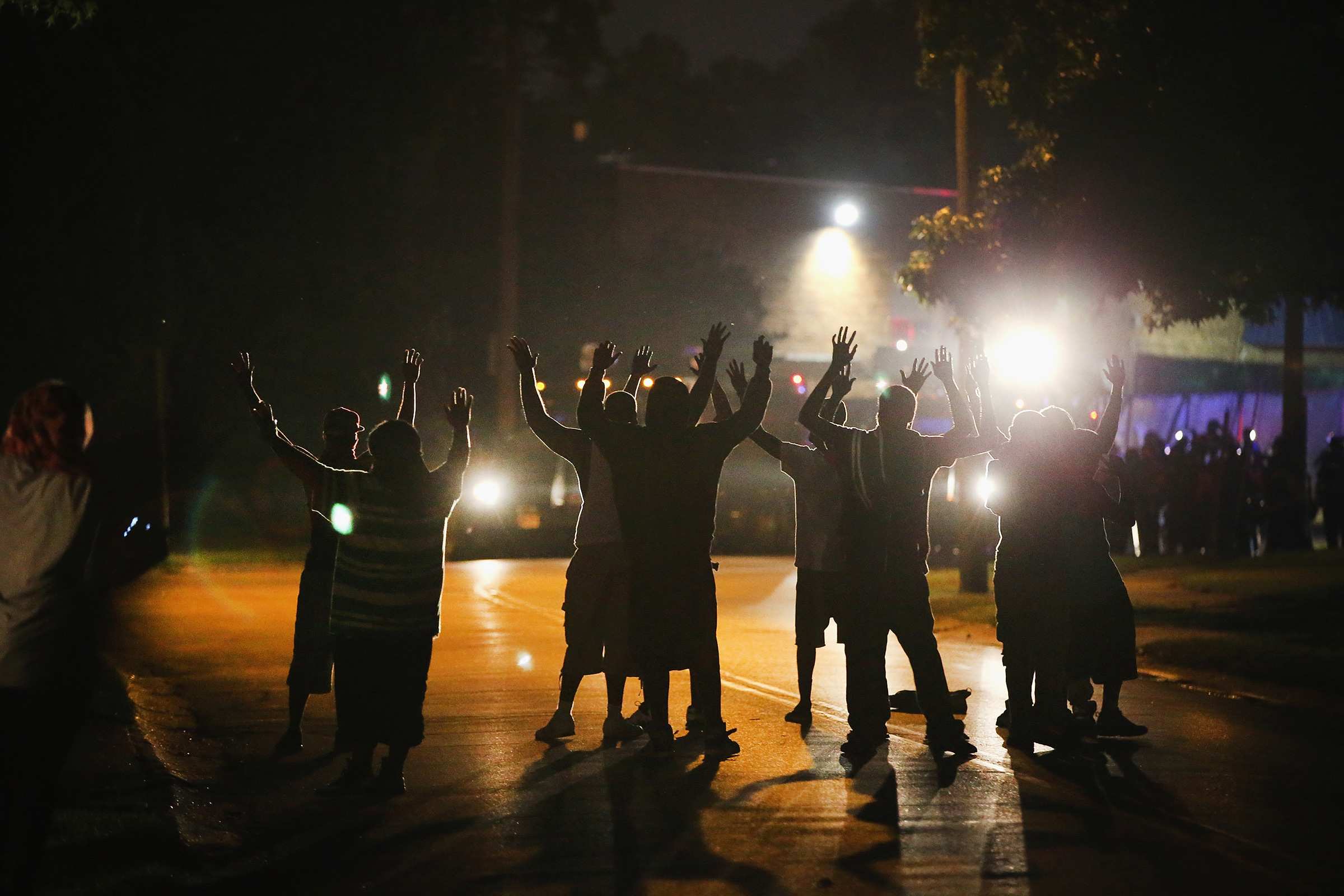
On Aug. 10, 2014, my first day of protest after the shooting of Michael Brown Jr., I stood outside the Ferguson Police Department and asked an officer why, on the night prior, he had brought German shepherds to a black community in grief, evoking the trauma of the mid-century civil rights movement. “Well, did anyone die?” he replied.
If that’s the standard, I thought, that’s precisely the problem.
“Yes. His name was Michael Brown Jr. And that’s why we’re not going home.”
Five years after Brown–an unarmed black teenager–was gunned down by officer Darren Wilson, Ferguson is a fixture. The day that a small town 15 minutes from my childhood home went from being Ferguson, Mo., to #Ferguson altered our collective outlook forever. But in August 2014, we weren’t trying to change the world as much as we were trying to secure our own humanity. We saw in Brown’s slain body the spirit of every black young person, under threat by systems that seem to feed on our downfall.
Our work was not looked upon with universal admiration. For months, we were called thugs, as though our black skin precluded us from being patriots. We were painted as lawless and disorganized, despite our strategy and discipline. And our righteous outpouring was met by tear gas and rubber bullets from local police departments.
But the police kept killing us, so we kept showing up. We did as Dr. Martin Luther King Jr. wanted: we went wherever injustice lived, creating the crisis that would drive power structures to change. In the end, we had built a movement we call the Ferguson Uprising: over 400 days of sustained direct action.
Brown was killed after five years under our first black President and an Administration during which progressive values inched their way into lawmaking. The lullaby hummed by the existence of a thoughtful President began to unwittingly hush many of us to sleep. Long past the Black Power movement or even Occupy Wall Street, too many of us had forgotten the responsibilities of the office of citizen.
The pot began to simmer when Trayvon Martin was killed in 2012. In Ferguson it boiled over. The uprising shifted society: long before Trump’s Inauguration, resistance marches emerged across the country, mirroring Ferguson in tenacity and power, centered on their own victims of police violence. The uprising shifted culture: films like Ava DuVernay’s Selma and artists like Jesse Williams and Common placed the long narrative of black struggle in the context of our cries in Ferguson, and brands embraced the value of social change. The uprising shifted politics: police shootings went from footnotes to front-page stories, with outlets tracking just how disproportionately black, brown and indigenous the victims are. Democratic presidential candidates are now expected to not only have plans for ending police violence but also to talk knowledgeably about systemic racism.
In December 2014, seven activists met with President Obama and senior adviser Valerie Jarrett at the White House, and the four of us from Ferguson gave an unvarnished account of what was happening on our streets. Toward the end, the President shared advice, former organizer to current ones. He recalled Dr. King: “‘The arc of the moral universe is long, but it bends toward justice,'” he quoted. “It’s long. That means we need you in this for a while.”
The work is not done. Police still kill over 1,000 people every year and rarely face punishment. Local organizations are still fighting the overzealous policing practices in St. Louis County that contributed to the violence visited upon black communities. Many activists have faced the harsh consequences of society’s failure to acknowledge their contributions. And the Trump White House has pursued policies that deepen harm in black communities.
The best way to honor the Ferguson Uprising is never to place it in our rearview mirror. It took centuries for the current political landscape to form, and it will take all of us placing our hands on the plow to till the soil for the world we dream of to grow. Freedom work isn’t popular, but whether it’s fighting police violence in St. Louis or white supremacy in El Paso, it is always necessary. Ferguson put our country back to work again.
More Must-Reads from TIME
- Donald Trump Is TIME's 2024 Person of the Year
- Why We Chose Trump as Person of the Year
- Is Intermittent Fasting Good or Bad for You?
- The 100 Must-Read Books of 2024
- The 20 Best Christmas TV Episodes
- Column: If Optimism Feels Ridiculous Now, Try Hope
- The Future of Climate Action Is Trade Policy
- Merle Bombardieri Is Helping People Make the Baby Decision
Contact us at letters@time.com